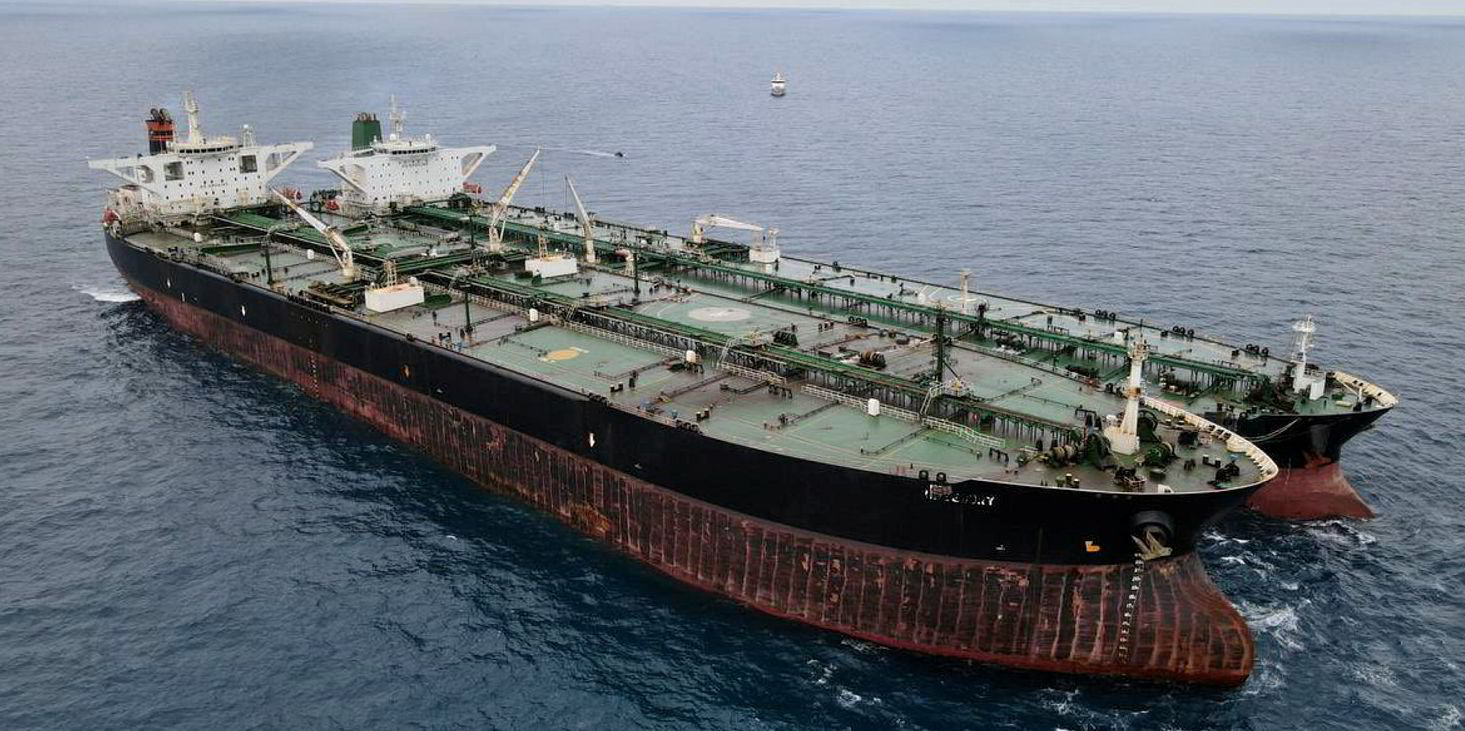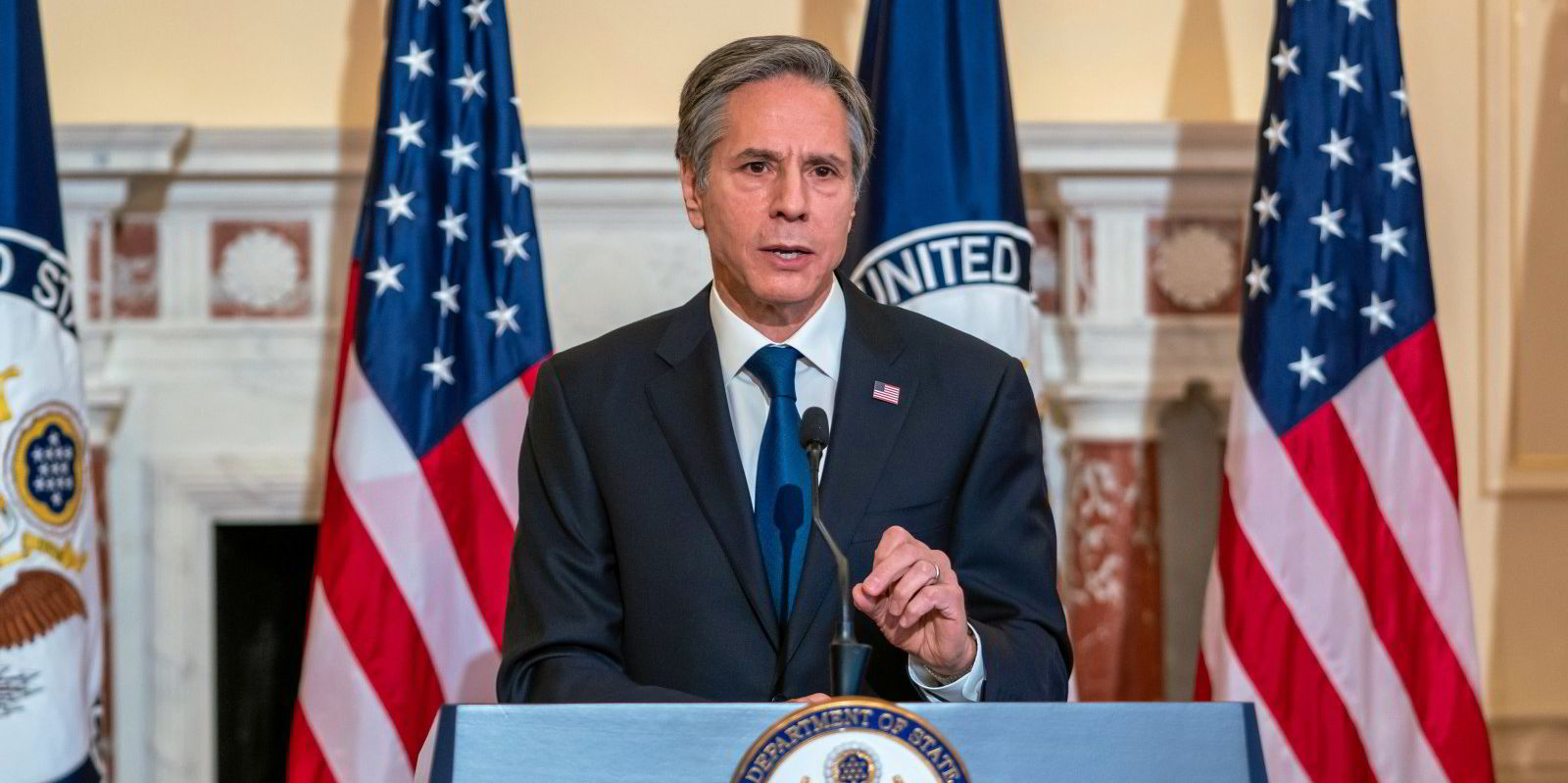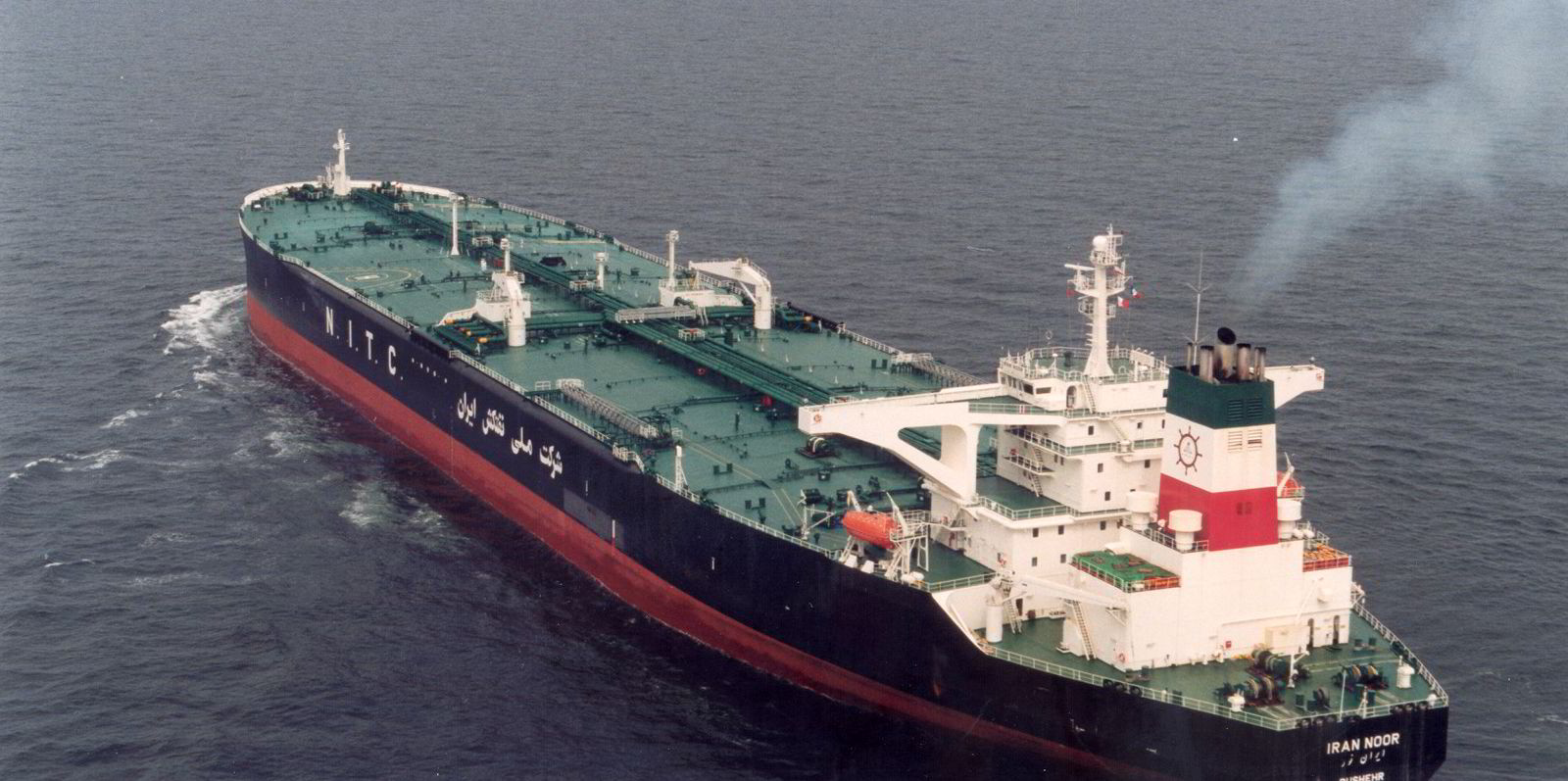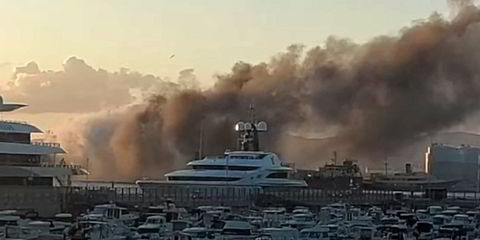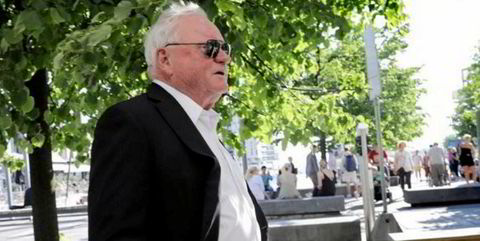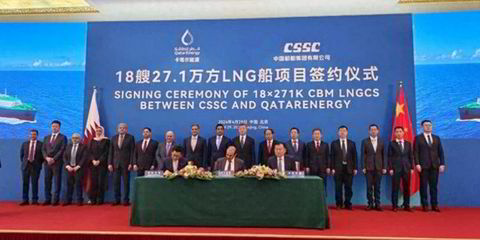Iran is storing around 60 million barrels of sanctioned oil on board tankers anchored off its coast as it waits for a positive outcome on attempts to revive the Joint Comprehensive Plan of Action nuclear agreement.
The oil is being kept on vessels on the NITC Tankers fleet, an official from the company told Singapore’s Straits Times newspaper.
The official, whose identity was not disclosed, said 80% of the NITC fleet is being used to store oil, while the remaining ships are transporting crude to China.
Iran watchers claim the oil is being transshipped at deepwater anchorages in Malaysia.
VesselsValue lists NITC as controlling a fleet of 57 tankers, including 38 VLCCs, eight suezmaxes and five aframaxes.
Most of the fleet is anchored off Kharg Island, a key Iranian crude export terminal, the official said.
The Straits Times’ energy desk said Iran has been pumping huge amounts of oil into its tankers over the past several months in expectation that it will get relief from economic sanctions.
The action plan places restrictions on Iran’s nuclear programme. In 2018, the US withdrew from the deal and reimposed sanctions on Iran.
Talks to reinstate the deal have been held since US President Joe Biden took office in January 2021, but an agreement has yet to be reached.
Both sides are under pressure to revive the nuclear deal.
Russia’s invasion of Ukraine in February sent oil prices soaring, and Iran is seen as an alternative supply source for Europe, which is attempting to ween itself off Russian oil and gas.
The Iranian government is facing mounting domestic pressure as its oil-based economy struggles under sanctions.
A new nuclear agreement seems far from being reached right now. Indirect talks between the US and Iran have hit an impasse.
US secretary of state Antony Blinken said in late September that he did not see any near-term prospects for a revival of the deal, claiming that “Iran has continued to try to add extraneous issues to the negotiation that we’re simply not going to say yes to”.
On Wednesday, US State Department spokesman Ned Price said Tehran’s demands remain unrealistic and a new nuclear deal is “not our focus right now”.
Iran’s Ministry of Foreign Affairs claimed in September that it had sent a “constructive” response to US proposals.
Political observers believe the main remaining disagreement involves pertinent enforcement actions by the International Atomic Energy Agency to limit Iran’s nuclear programme.
Until this and other issues are resolved, NITC’s tanker fleet looks set to keep storing oil off Kharg Island.
